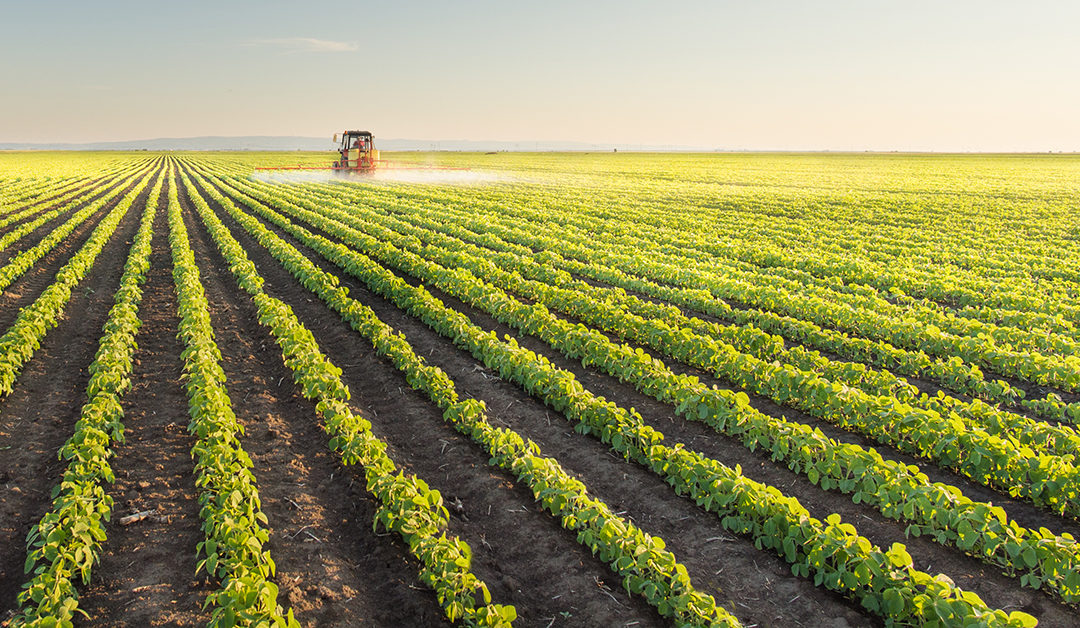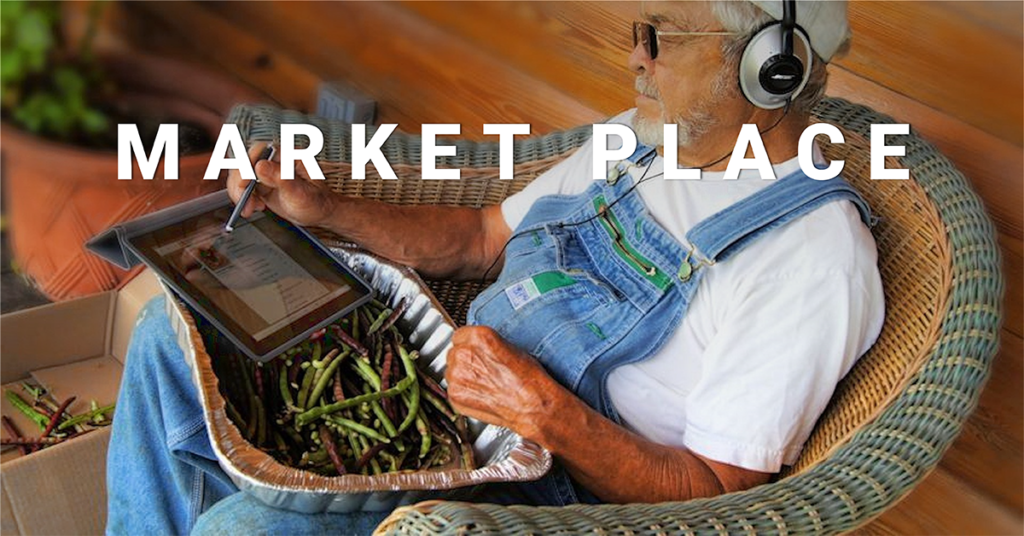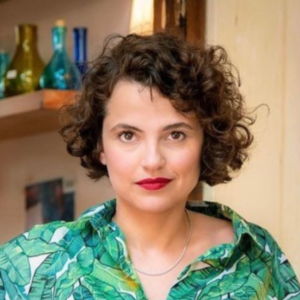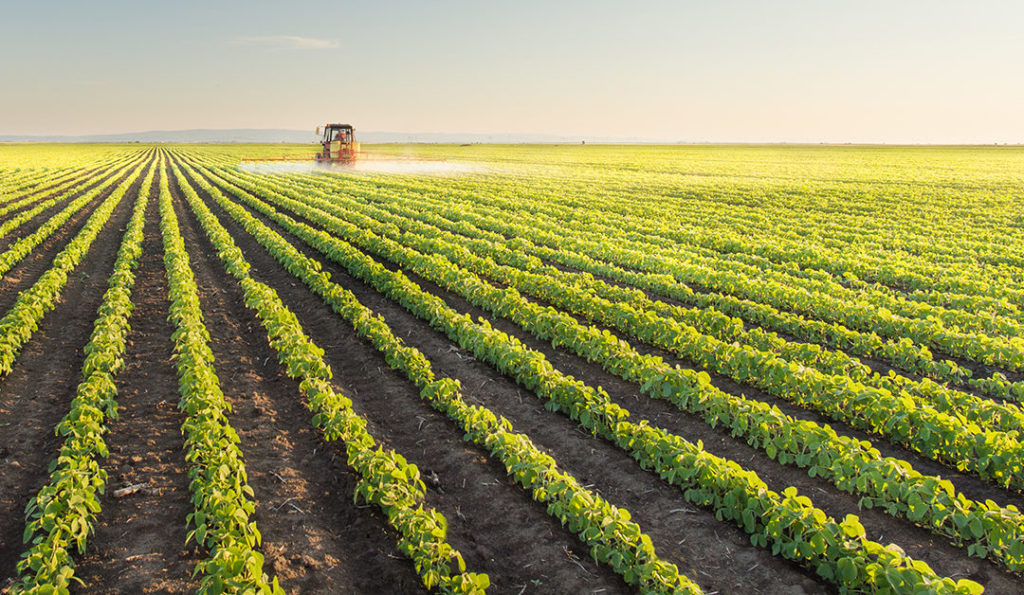
The Agrytech Hackathon is an essential pit-stop for the Agrytech Accelerator program. It is a pipeline that allows professionals and experts from different backgrounds to learn, experiment, and build agri-food solutions that can lead them into creating their own startup and potentially get them into the accelerator, where they can grow their business.
Four Challenge Tracks
For the third edition of the Agrytech Hackathon, and like every year, the team of the Agrytech Program has met up with important players in the Lebanese agri-food sector to discuss the challenges they are facing that require innovative solutions. These challenges are then proposed to the participants, who can choose a challenge to work on or apply to the Hackathon with a challenge and a solution of their own.
The only difference is that this year, we added an extra day to the Hackathon. So instead of three days of learning, hacking, and pitching, we have dedicated one day for field trips. Depending on the applicant’s challenge, we will be organizing one-day visits to help the participants get acquainted with the challenge in real life.
Below you will find 20 different challenges proposed by our partners in the industry, categorized into 4 different tracks: Farming, Post-harvest, Manufacturing/Processing, and Marketplace. We encourage you to go through them, and apply your critical and innovative thinking to creating solutions, no matter what your background is.
Track 1: Farming
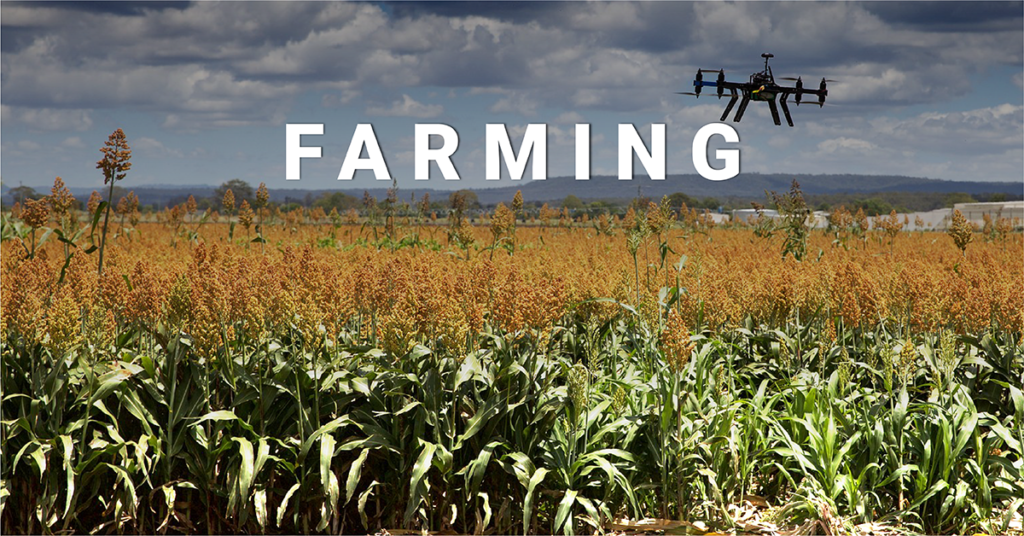 In this category, we are looking at solutions to solve challenges from the supply of products and materials to farming practices including harvesting.
In this category, we are looking at solutions to solve challenges from the supply of products and materials to farming practices including harvesting.
Challenge 1: Viticulture
Adopting precision viticulture requires an adaptation for all farming systems, thus implying huge investment in new equipment (tractors, spreaders, and sprayers).
What is needed: A simple add-on to existing equipment that transforms current traditional spreaders and sprayers to smart agriculture equipment. The solution can be imagined as follows: drone imagery is taken, the photo is uploaded and analyzed on the cloud-based software to differentiate different zones of vigor or soil types (E.g. Zone 1, Zone 2 and Zone 3). The farmer will enter the dose for each zone. This add-on equipment will have an accurate GPS tracking system. Based on the location, an order is given to adjust the flow of the spreader or sprayer for each of the delimited zones. In the traditional system, the farmer used to apply one dose for each plot, usually the highest. With this new solution, the farmer will only apply the needed amount which will significantly reduce production costs (less product used) and increasing the yield by having the right amount at the right location at a reasonable cost.
Challenger: Château Kefraya
Challenge 2: Cherry Harvest
Harvesting fresh cherries is the most labor-intensive practice within cherry production. To date, farmers do not have access to any mechanization of this process, which could significantly alleviate their cost.
What is needed: A mechanical device that can help growers harvest the cherry crops and decrease their labor costs.
Challenger: René Moawad Foundation
Challenge 3: Diagnosing the olive harvest time
Growers rely on traditional methods to determine harvest date and may end up with harvested olives that do not meet the optimum criteria to get the right quality and quality of the oil.
What is needed: Develop a mechanical tool that could test the ripeness of the olive on the tree. This tool should be specific to the variety of olive and should help farmers decide if they can start to harvest or not.
Challenger: René Moawad Foundation
Challenge 4: Reducing the excess of water in irrigation
More than 70% of available water resources in Lebanon are used by the agriculture sector. Climate change is threatening the existing resources and making it scarce to farmers. The Bekaa plain has an overall Mediterranean climate with a more arid tendency. Agricultural production is concentrated in this area and accounts for 42% of total cultivated land. Growers in this area do not know the exact amount of water needed per type of plant and soil. Knowing the exact amount of water needed may help save these resources and make it more sustainable.
Research made in this perspective helped to provide the calculation of different parameters such as ET0 and ETP, temperature and humidity. Tools created helped determine the amount of water but were not taking into account the plant type, the soil characteristics, and daily prevailing climatic conditions. Also, tools were not allowing automatic irrigation. The Michel Daher Social Foundation is concerned about this challenge and is looking to find a tool for farmers so they can irrigate knowing the right amount of water needed per plant.
What is needed: Design a very convenient cost-effective tool that can be purchased by farmers to inform them about the amount of water needed per type of plant.
Challenger: Michel Daher Social Foundation
Challenge 5: Measurement of soil moisture content
Soils with high clay content hold the highest quantity of water. Sand, silt and clay form the soil texture; thus, farmers need to analyze their soil for their texture content percentages of these three components. The reason why technology innovation is still needed in soil moisture sensors goes to the fact that existing technologies are either expensive or not accurate/or both. Accuracy in soil moisture content measurement will save water in huge volumes because agriculture consumes the majority of water nationwide and even worldwide. Water conservation is environmentally among the priorities and it can save a fortune at the farmer level (money-wise).
What is needed: Innovate a soil moisture sensor that might be read remotely and provide accurate readings. Soil moisture sensors are still under investigation scientifically to reach inexpensive model and easy to be tackled by farmers. If we may reach a simple accurate manner of measuring soil moisture sensors, it will open a great business in relation to farmers and on the level of water management (water governance). Sensors could be read through communication technology and by mobile application facilities.
Challengers:
- Rural Projects and Irrigation Department – Ministry of Agriculture
- Lebanese Agriculture Research Institute (LARI)
Challenge 6: Determining the exact species for forest plantation
Currently, many scientific studies help experts decide which species to plant and best practices to use. However, there is no user-friendly tool that would allow average users to take such decisions.
What is needed: a decision-making tool that includes data on soil, precipitation, site conditions (slope, aspect), site location (latitude, altitude), and site history to generate data related to species to be planted and practices to be used. LRI has done a modeling exercise producing this data through a geographic information system (GIS). We, however, need a tool that is easier than GIS for the average user such as a land-owner or a municipality.
Available data:
- Cost of container
- Cost of shipping and customs
- Percentage of breakage of containers on site
- Satellite data http://www.lebanonspatial.org/ and http://www.arabspatial.org/
Challenger: Lebanese Reforestation Initiative (LRI)
Challenge 7: Decrease Waste
Solid waste has been a prominent issue in Lebanon and the reforestation sector is currently seeking to decrease waste in its process. Currently, native tree seedlings are placed in reusable plastic pots during the process of planting forest sites having plastic waste as an unfavorable consequence of the process; seedlings are produced in imported containers that are reusable and not found in the local market.
What is needed: An easy and environmentally-friendly packaging system that allows nurseries to send their seedlings to the planting site without them being damaged and without sending the containers. Also, the cost of seedling transportation doubles when seedlings are sent with their containers because of their return trips, size and shape. Thus, LRI is seeking to find a solution to reduce pollution to our environment by using underrated materials.
Available data:
- Climatic data
- Soil data
- Topographic maps
- Site history
- Satellite data http://www.lebanonspatial.org/ and http://www.arabspatial.org/
Challengers:
- Lebanese Reforestation Initiative (LRI)
- Robinson Agri
Challenge 8: Improving the monitoring of beehives
Beekeepers move long distances to ensure optimum measures of temperature, moisture, etc. are prevailing in their hives, and this is time-consuming. To date, researchers have developed a sensor that helps them control the hive and monitor the prevailing conditions, however this is very costly.
What is needed: Creating a simple cost-friendly analysis tool can assist beekeepers in this heavy-duty.
Challengers:
- Beekeeping Experts
- Beekeeping Unit – Lebanese Agriculture Research Institute (LARI)
Challenge 9: Wildfires
Climate change has increased the risk of wildfires during the last decades; drier climatic conditions and higher temperatures are aggravating the situation. To closely monitor future large wildfires, concerned entities should be timely updated on the occurrence of fires at the national scale.
What is needed: an online application that can help in timely showing and recording fire occurrences in Lebanon throughout the year and providing automated reports on the time and location of the fire occurrence.
Available data: https://firms.modaps.eosdis.nasa.gov/active_fire/#firms-shapefile
Challenger: University of Balamand
Track 2: Post-harvest
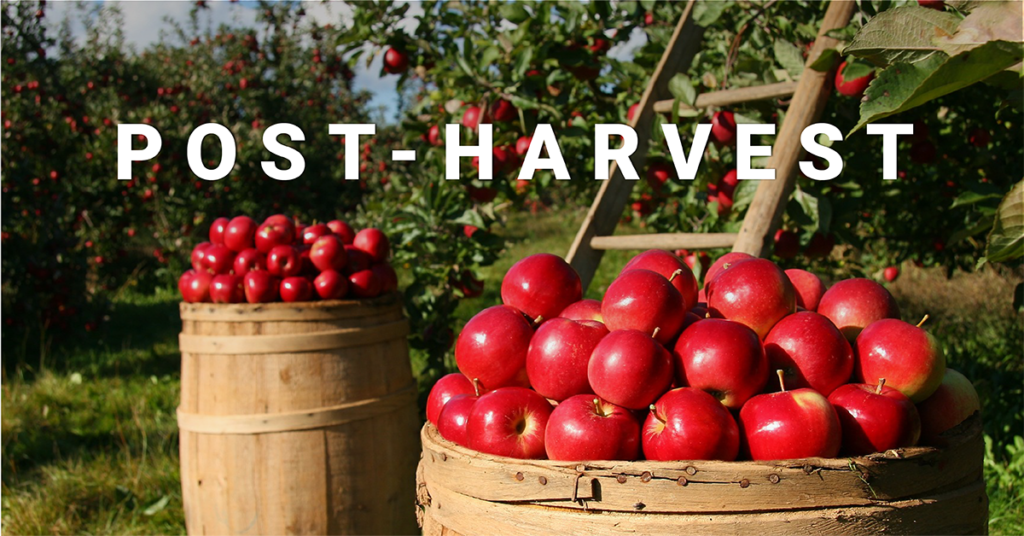 In this category, we are looking at solutions to solve challenges from the time the products are harvested and collected till they reach processors or consumers.
In this category, we are looking at solutions to solve challenges from the time the products are harvested and collected till they reach processors or consumers.
Challenge 1: Treatment of whey
Typical by-products from dairy farms include buttermilk, whey, and their derivatives. The high biochemical oxygen demand (BOD5) of whey protein poses major pollution for dairy industries. The latter once emitted into river systems contribute to high organic pollution to the environment. Around 400 L/day of lactoserum is produced at Arcenciel.
What is needed: a simple way to valorize whey into food or pharmaceutical products.
Challengers :
- UNIDO
- Arcenciel
Challenge 2: Treatment of daily waste
High level of waste results from agriculture products during postharvest handling (sorting, packaging), storage and transportation. Management of this waste is crucial on economic and environmental aspects.
What is needed: a solution to deal with the daily waste at the post-harvest unit at Arcenciel.
Challengers:
- Ministry of Environment
- Arcenciel
- Lebanese University
Challenge 3: Produce maturity tool
Fruits and vegetables need to be harvested at the right maturity for best taste and right firmness to bear the postharvest handling. It is possible to objectively check the product maturity and quality by testing sugar and acid content, firmness, aroma and other parameters. However, existing tools are destructive.
What is needed: Non-destructive cost-effective tools to do those tests (starch content; sugar content, firmness level, sugar level, acid level, etc.) in the field, help farmers to detect ripeness level of random fruits and vegetables allowing the decision-making and the planning of the harvest campaign. This tool would be owned by cooperatives and rented by farmers when needed.
Challenger: Lebanese University
Track 3: Manufacturing and Processing
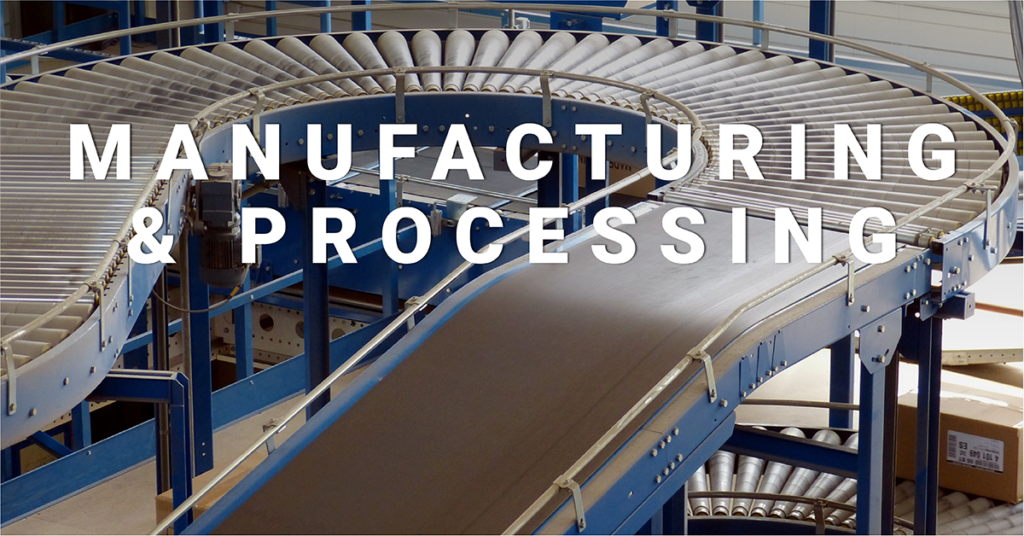
In this category, we are looking at solutions to solve challenges from the time the products reach processors through different transformation activities including packaging and distribution.
Challenge 1: Freekeh
Freekeh – crushed durum wheat at a green growth stage, is a Lebanese product and one of the world’s latest food trends. It is well known for its nutrients and health benefits. The tradition of harvesting and roasting wheat is a common practice in the southern villages of Lebanon and ensures work opportunities for many women. An important phase during the freekeh preparation relies on sorting the freekeh to eject the stones and control the quality of the grain without manual intervention to avoid contamination.
What is needed: Design an optical sorting machine that can be used for freekeh as well as other types of grain such lentils.
Challenger: UNDP
Challenge 2: Processing new products
A huge amount of waste is generated form agricultural products, which causes economic and environmental problems in many regions in Lebanon. Valorizing the extra waste and transforming it into new products would be helpful to avoid these losses.
What is needed: an innovative way of processing new products on the seasonal major crop.
Challenger: Arcenciel
Challenge 3: Processing of olives
Olive tapenade is a delicious and healthy appetizer that Lebanese consumers appreciate. It is produced in Lebanon at manufacturers of food products. There exist large scale machines or family size tools to pit the olives for tapenade production.
What is needed: Designing a small machine for small cooperatives to help them process their olive production while creating an olive paste with a twist.
Challengers:
- Lebanese University
- Olive expert
Challenge 4: Alternatives to Methyl
Food industries that use cereals are dependent on fumigants, usually methyl bromide, for disinfecting the whole factory including machines and pipes and protecting them from insects. The product has been banned worldwide because it depletes the ozone layer and impacts human health severely.
What is needed: available alternatives to act like methyl bromide without the drawbacks.
Challenger: Agro-food industry
Challenge 5: Sumac production
Sumac production is on the rise; however, it is time-consuming to separate the crust from the full.
What is needed: Creating a new tool that helps to do this task will facilitating the harvest of sumac for many farmers.
Challenger: University of Balamand
Challenge 6: Dioxin in bread
High dioxin levels are found in bread because of the combustion and the furnaces where bread needs to pass.
What is needed: find a possibility to replace combustion with conduction heat with an acceptable cost.
Challenger: University of Balamand
Challenge 7: Traceability within the agricultural products
A common challenge that is currently being faced by food processors is how to control their stocks (i.e. incoming and outcoming items) as well as maintain consistency of their products. Finding a solution for this challenge (traceability) will help food processors maintain and sustain their markets through tracing products. This is good if we take into consideration the feasibility of these solutions.
What is needed: A solution that enables small processors to control their stocks and track the quality of their products with backward linkages to the input suppliers at an affordable and feasible cost.
Challenger: USAID
Track 4: Market Place
In this category, we are looking at solutions to solve challenges online or offline in marketing, distribution and exports of products and services.
Challenge 1: Improving the image of exported agricultural products
The export of the Lebanese agriculture product is decreasing. The main problem is that these products do not meet international standards, and this is lowering the image of Lebanese agriculture products. Tracking and tracing agriculture products from the farm to retailers is crucial for agriculture producers to be able to safely deliver quality products to their consumers. Product traceability also allows these producers to respond faster to potential quality issues and guarantee a quality product.
What is needed: technologies that would allow producers to trace their products from farm to customer.
Challenger: Chamber of Commerce, Industry and Agriculture (CCIA)
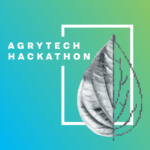 Agrytech Hackathon
Agrytech Hackathon
Berytech is organizing the third edition of the Agrytech Hackathon, supported by the Embassy of the Kingdom of the Netherlands in Lebanon. Held at Berytech’s Innovation Park in Mar Roukoz and continuing over 4 days, the hackathon is an exciting opportunity to develop your prototypes and agri-food solutions using technologies such as Internet of Things, Big Data, and Artificial Intelligence.
Throughout the hackathon, you will receive the assistance of technical, industry and business experts, as well as the support of Source Institute with their international experts, and you will have access to the tools and hardware prototyping facility of the Berytech Fab Lab.



